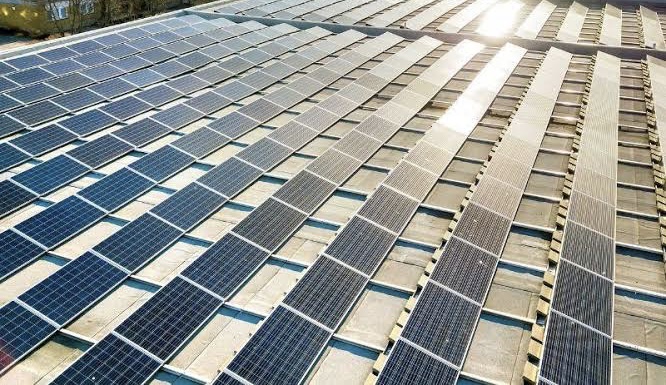Nigeria, home to the largest number of un-electrified people in the world, presents a significant opportunity for distributed energy resources (DERs). According to a 10-year roadmap by RMI and the Global Energy Alliance for People and Planet (GEAPP), Nigeria could see over 20GW of market potential through the rapid expansion of utility-enabled DERs, especially renewables and batteries.
The roadmap, launched during a recent delegation visit to Nigeria’s successful energy transition projects, was developed with the collaboration of five of Nigeria’s 11 electricity distribution companies (DisCos). A least-cost analysis revealed a substantial opportunity for DER implementation across the country.
Building on initial utility-enabled distributed renewable energy systems projects, the roadmap suggests ways to improve DisCos’ revenues, cut carbon emissions by 33 million tons of CO2e per year, and close the power supply gap.
“Through these win-win-win business models, customers benefit from reduced energy costs by displacing expensive, polluting fossil fuel generators, and renewable energy developers access larger, more attractive project sites,” said RMI.
The report follows the SDG7 Tracking report, highlighting setbacks in achieving universal access to sustainable energy by 2030. Over 85 million Nigerians lack access to energy.
RMI’s data suggests a market opportunity of 1GW annually for the five DisCos, equating to approximately 2GW per year nationwide over the next decade, totaling over 20GW by 2033. Deploying the required DER capacity to close the supply gap for all 11 DisCos presents an investment opportunity exceeding $14 billion over 10 years, scaling to over $18 billion when including distribution network upgrades.
“DisCos have a unique window of opportunity to benefit from utility-enabled DERs by collaborating with private project developers and stakeholders,” said Ije Ikoku Okeke, RMI managing director. “This could mean a more democratized power sector and an 8% reduction in Nigeria’s total 2022 emissions.”
A lack of adequate and reliable power stifles development, costing Nigeria’s economy $29 billion annually, according to the IMF.
DisCos struggles to meet performance indicators set by the Nigerian Electricity Regulatory Commission (NERC) due to high technical, commercial, and collection losses, non-cost reflective tariffs, and low revenue collections.
Joseph Nganga, interim CEO at GEAPP, said, “GEAPP is excited to collaborate with RMI to empower DisCos and developers to leverage this incredible opportunity that can help Nigeria attain its energy access and transition goals.”
NERC’s Deputy General Manager of Market Competition and Rates, Abba Ibrahim Tarab, said the DER roadmap provides actionable recommendations to guide the acceleration of DER project deployment. “By next year, we aim for at least 10% of their energy to come from embedded generation, of which 50% should be from renewable energy resources,” said Tarab.
RMI stated that utility-enabled DERs can reduce reliance on the national grid, decrease losses, increase renewable energy share, reduce customer defection, and improve DisCo revenue collection. Allowing DER developers to generate electricity and sell directly to customers with supply gaps creates a beneficial model for developers, utilities, and customers.
Okwu Kene Chijioke, Chief Operations Officer at Abuja Electricity Distribution Company, mentioned plans to review their strategy, particularly for interconnected mini-grids. Obianuju Okwueze, head of business development at Ikeja Electric, emphasized analyzing priorities and securing management support for DER projects. Nuru Wada Nas, head of regulatory compliance at Kano Electricity Distribution, committed all resources to pursue this framework. Yinka Adewumi, general manager at Eko Electricity Distribution, highlighted the significant improvement in carbon footprint through renewable energy sources. Jonathan O Lawani, chief technical officer at Benin Electric Distribution Company, noted that RMI’s assistance in data analysis was crucial.
The roadmap underlines the potential within each company’s network and identifies energy resources or technologies available for immediate deployment.
Source: ESI Africa



